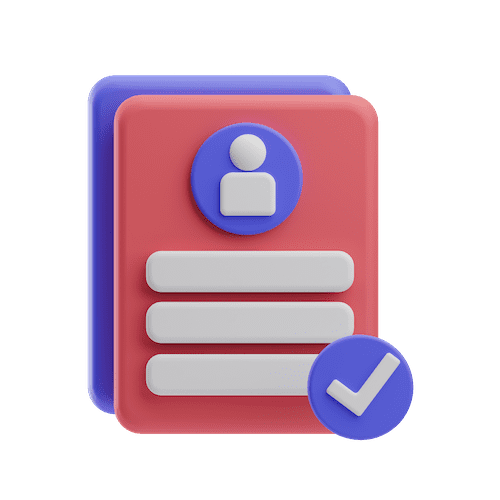Table of Contents
Not every time we are in a state of chatter it is about the to-do list, work deadlines, and stressors in life. In some cases, it is about food. Have you ever got those thoughts regarding certain food and it comes to your mind even when you are not hungry, and do you always have to fight against cravings which take over your head? You are not the only one. This is what professionals refer to as food noise and it is a battle that a lot of people have to go through on a daily basis. Studies on food noise are at their infancy stage and yet they are already being recognized as a key source of the challenges related to weight management.
Those who are overweight or have a high body mass index (BMI) are more likely to feel the effects of food noise. Overeating, cravings, and a lack of awareness of one’s own hunger signals are all symptoms of an unhealthy obsession with food, which may impede weight loss efforts. But what exactly is food noise, and more importantly, how can you stop it–without resorting to extreme measures or medications? Let’s dive into this topic and explore ways to reclaim your mental space.
Let’s dive into this topic and explore ways to reclaim your mental space.
Signs of Food Noise
Among the many ways that food noise may take are:
- Overwhelm with food and meal preparation on a regular basis
- Feeling hungry and unable to satisfy urges, even after eating
- Obsessive thoughts about food, weight, and caloric intake
- A constant need to eat and a heightened awareness of hunger
The Impact of Food Noise on Eating Habits
To better understand food noise, imagine two people at a party. One person is engrossed in a conversation, fully engaged and focused on the discussion. The other is constantly distracted, checking their phone and looking around the room. Naturally, the person who is more focused on the conversation will contribute more meaningfully to it and enjoy the interaction, while the one distracted by their phone may struggle to engage and enjoy the moment.
Similarly, individuals who are consumed by food noise are more likely to be fixated on food thoughts, leading them to act on cravings or overeat. This mental distraction can make it harder to pay attention to natural hunger and fullness signals, which makes managing weight a challenge.
By recognizing and addressing food noise, you can shift your focus, reduce overeating, and make more mindful, intentional choices about your eating habits. This approach can lead to healthier and more sustainable weight management.
Why Does Food Noise Happen?
Food noise can stem from various causes, such as:
- Emotional Triggers: Stress, anxiety, and emotional upset can heighten food cravings and obsessive thoughts. It may cause people to seek comfort in food which often becomes a way to cope with negative emotions, leaving a cycle of guilt and frustration.
- Dieting and Restriction: Constant dieting, calorie-counting, or restricting foods can lead to an increase in food thoughts. This often causes the body to crave the very foods you’ve been trying to avoid.
- Media and Social Pressure: Advertisements, celebrity diets, and social media can bombard us with unrealistic body images and messages about what we should eat. This can intensify food noise, making it hard to ignore.
How to Stop Food Noise Naturally
If food noise has become a constant companion, it can feel overwhelming. The good news is that you don’t need to resort to quick-fix diets or extreme measures. There are several natural, sustainable ways to regain control over your eating habits and reduce mental chatter. Here are practical steps you can take to quiet food noise naturally:
1. Practice Mindful Eating
Mindful eating is a simple but effective technique that involves paying full attention to the experience of eating. It means eating slowly, avoiding screens while eating, appreciating the taste and texture of each bite, and truly listening to your body’s hunger and fullness cues. By focusing on the present moment and engaging all your senses, you can tune out the mental noise about food.
Why it works: Mindful eating helps break the cycle of emotional or mindless eating. It encourages a healthier relationship with food, as you start to feel more connected to your body’s natural hunger cues, rather than reacting to cravings or external triggers.
Beyond Blue supports mindfulness practices as an effective way to manage anxiety and mental health, which can be linked to food noise.
2. Address Emotional Eating
Food noise is often fueled by emotional triggers. Stress, boredom, sadness, or anxiety can all drive us to seek comfort in food. Identifying emotional eating patterns is key to managing food noise.
How to quiet food noise: When you notice yourself reaching for food out of emotion rather than hunger, pause and ask yourself, “Am I really hungry, or am I trying to fill an emotional need?” Consider other ways to cope with emotions, such as journaling, taking a walk, or practicing deep breathing.
3. Focus on Balanced Nutrition
Food noise often increases when our bodies aren’t properly nourished. If you’re not eating a balanced diet, your body may crave sugar or processed foods more often. The more you restrict or deprive yourself, the more intense food noise can become.
What to do: Focus on eating balanced meals that include a mix of protein, healthy fats, fiber, and complex carbohydrates. Aim for a variety of fruits, vegetables, whole grains, and lean proteins. This will keep you feeling fuller for longer, reducing cravings and food-related thoughts.
A well-balanced diet also supports mental clarity, which can help reduce the stress and anxiety that fuels food noise. It can also reduce the likelihood of cravings and emotional eating.
4. Incorporate Regular Physical Activity
Physical activity is another great tool for quieting food noise. Exercise boosts your mood by releasing endorphins, the body’s natural feel-good hormones. It also helps regulate hunger hormones, which can reduce cravings.
How to stop food noise: Incorporate regular exercise into your routine, whether that’s a brisk walk, yoga, or a more intense workout. The goal isn’t to use exercise to “burn off” food, but rather to improve your mental and physical well-being.
Regular exercise is vital for mental health and can be an effective way to manage stress.
5. Seek Professional Help
When the noise of food causes an overwhelm or impacts your everyday life, then it is time to consult a healthcare provider. Telehealth care in Australia means that it has never been more convenient to seek support of registered dieticians, psychologists or mental health professionals all in the comfort of your home.
A telehealth consultation enables you to follow through with an expert on diet to eliminate the triggers of food noise and come up with a nutritious diet plan.
Doctor Help has made it possible and easy to get a virtual consultation with dietitians and mental health specialists who can offer individualized approaches to coping with food noise.
Does Food Noise Affect Overweight People Only?
Though food noise occurs more often among the obese individuals, it can affect everyone. In some studies, it has been observed that overweight individuals are more sensitive to food-related signals suggesting that their brains are hypersensitive to food noise.
Conclusion
You do not have to allow food noise to take over your life. Through enhanced mindfulness, recovery of emotional eating, emphasis on balanced eating, physical exercise, and consultation with professional practitioners when required, there is a chance to step-by-step reduce the level of food noise and be able to build a healthy relationship with food.
Although you may be having a hard time dealing with food noise and are seeking the natural methods of handling it, note that you can receive assistance. Telehealth services in Australia have removed more barriers to allowing you to seek the support you require with qualified and skilled professionals who know what your particular struggles might be. Start experiencing a more conscious, balanced lifestyle today.
For more information on managing food noise and improving your mental health, explore Doctor Help or you can book a telehealth appointment with us today.For more information on managing food noise and improving your mental health, explore Doctor Help or you can book a telehealth appointment with us today.
Reference:
- Clinic, C. (2025, June 17). What is food noise? and how to quiet it. Cleveland Clinic. https://health.clevelandclinic.org/food-noise-and-how-to-stop-it
- Mindfulness and mental health. (n.d.). Beyond Blue. https://www.beyondblue.org.au/mental-health/wellbeing/mindfulness-and-mental-health
- Exercise and stress: Get moving to manage stress. (n.d.). Mayo Clinic. https://www.mayoclinic.org/healthy-lifestyle/stress-management/in-depth/exercise-and-stress/art-20044469
- Belfort-DeAguiar, R., & Seo, D. (2018). Food cues and obesity: overpowering hormones and energy balance regulation. Current Obesity Reports, 7(2), 122–129. https://doi.org/10.1007/s13679-018-0303-1














